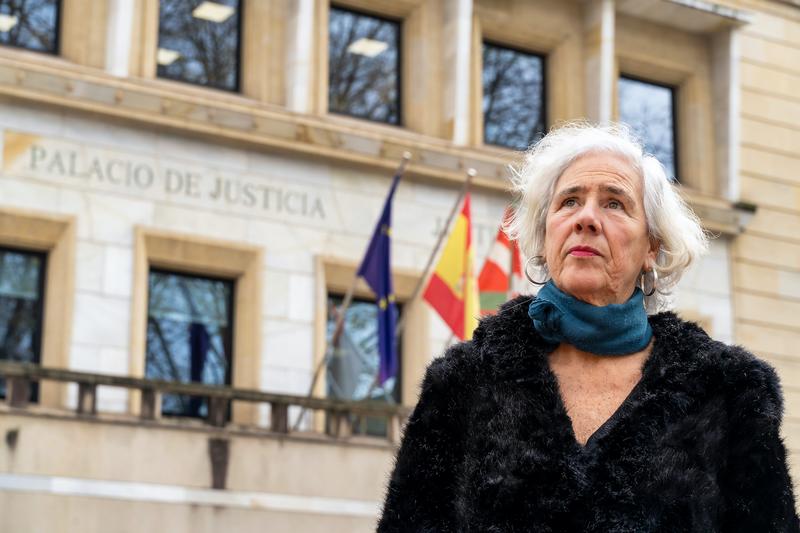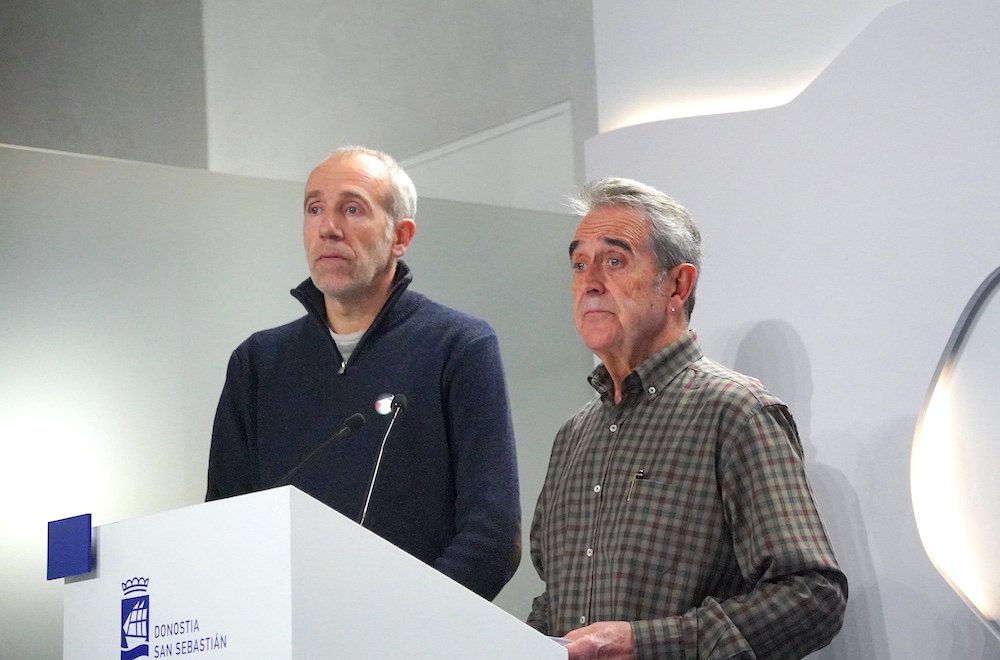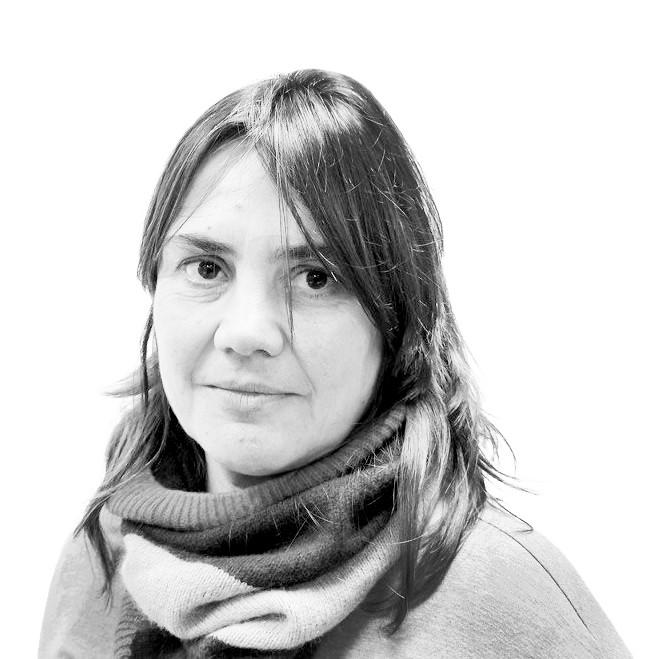"If you leave the decision in the village, you avoid corruption."
- Strengthening and ensuring citizen participation and the publication of all public works and services is the key to combating political corruption. Basque Country is no exception.

From time to time, news about political corruption comes. Occasionally there are signs and suspicions of corruption and fraud, usually linked to political activity. There is now a habit of profoundly blurring the public and questioning the whole political environment. Judge Garbiñe Biurrun (Tolosa, Gipuzkoa, 1960) and professor at the University of the Basque Country believes it is right to discuss everything and want to go to the root of this problem. This exercise, besides being interesting, can provide democratic solutions. In order to do this, we have to analyze how to structure a democratic society, how to channel citizen participation and, finally, how to control those means that are put in place. It says that to end corruption it is essential and possible for citizens to exercise their right to participate in public affairs in a different way.
The judgment in the De Miguel case is confirmed. Is this an exception?
The image of the Basque oasis has been widely used politically and was only an illusion. An absolutely false image, with a clear political intention. There would probably have been more crimes of this kind and at the moment they are also taking place, but in no case is it systematic or the tip of an iceberg. As the De Miguel case has shown, it is very difficult to investigate these crimes.
There are not many cases of corruption in the Basque Country. Is this a special case?
No. In Euskal Herria, we do not live in an exceptional situation or an oasis. The situation is similar to that of France, Portugal or Spanish autonomous communities. For example, controls are very similar, they have not increased, we have no special control anywhere else: there are internal controls and external controls.
What are the most important controls to prevent corruption?
Media control is essential. This requires transparency and research. When some issues relating to corruption appear in some media, in giving detailed and comprehensive information, the issue disappears with a little time, it is often not known whether research has been done, what has happened at the political level. Also, if the prosecution sometimes extends proceedings, then leaves them and the citizens do not notice. From time to time, the same issue returns to the media, but we do not know what really happens. It is clear that there are issues that are not closed.
Why does that happen?
On the one hand, the response of policy makers is very little. They help little. For example, one can cite the case of Osakidetza's opposition still under investigation. On the other hand, it is very difficult to investigate from outside. Existing controls are ineffective. Further internal and external controls would be needed. But that has to be regulated, it cannot be left to the media alone. In addition to the media, more formal and effective controls are needed.
“The free media of public institutions and authorities must be protected and promoted”
What are those other options?
The last control would be, at least in some respects, at the municipal level, that is, it should be the population. Citizen participation should be greatly increased on many issues. Urbanism would be a good framework for, for example, expanding, regulating this participation. If the decision is left directly to the people, corruption is avoided.
In some media reports of specific cases, conflict monitoring, discussions with power and systematic trends are published.
It is essential that in a democratic society there are free and powerful media that have the means to disseminate information. It is a difficult job of great merit. Today, there are not enough means against corruption. In addition to complaints, it will always be necessary to have a free and different view of the media, to be able to carry out research projects. In fact, some media outlets have made it possible to know a number of facts and to know a number of crimes. That is why the free media of public institutions and authorities must be protected and promoted. Media pluralism must be maintained.
In Spain, a few years ago, anti-corruption spring took place. Several were prosecuted and sentenced in various political parties. Then, it seems that a new way of doing politics has emerged, with new instruments. On the contrary, it seems that in Euskal Herria this trend has not occurred. Is there more tolerance here for party corruption in power?
Yes, in general there is too much tolerance for such crimes, both here and in Spain. Apart from what happened in 1996, cases of electoral corruption usually have no consequences. What is paid in court is usually a small part. Responsibilities are mainly clarified. There is very little awareness of the public authorities, and the public authorities should have that responsibility; society must be made aware of what public money is, what public policies are, what rights citizens have. As long as this is not done, we will remain absolutely tolerant of these issues. The people are not sufficiently aware of corruption offences and there is a clear political interest behind them, despite the fact that some media are trying to oppose it, investigating and following disputes, they are faced with difficulties, and even with certain negative attitudes of parties and public authorities. Consequently, it is difficult for citizens to know what and why is happening and how all this is avoided.
“The people are not sufficiently aware of corruption offences and there is a clear political interest behind it”
In fact, governments in power are not directly influenced by corruption cases in most cases, they are stable governments.
Very serious, widespread, long, stabilised corruption to be condemned in the elections. Such serious cases that have been known in Spain have rarely been sanctioned in the elections. I don't know if people forgive, forget or convince themselves of other means. The crime should be very serious to bear the consequences. Also, the word corruption should be used more than it is used.
Is there a difference with other sites?
In countries such as Germany and France, there have been resignations for plagiarizing a doctoral thesis. This would not be known as corruption here. Here for something like that nobody would resign. Do not resign for that. We have a very high level of water and we are not very demanding.

Can the closeness and convergence between politicians and employers be at the root of fraud?
It is originally intended to enrich a few or to allocate public money to other functions and purposes. A common interest. In these cases there is proximity and illegal agreements. Many companies work for public administrations, fraud is often the case. Example of the De Miguel case. I do not know whether it is a consequence of this proximity or not, but I would point out that every facility is made to commit such crimes. On the contrary, there is no facility to avoid them. There is a principle of transparency, there is a law for it, but then in the award of contracts, in the award of works and services, they are allocated to private companies, there are frauds. All public services should be provided by public means, by the administration. Directly or through public enterprises. This would make it difficult to commit these crimes and cut off the supposed connections between politics and business people.
“All public works and services should be republished, that would be the main obstacle to committing corruption offences”
In order to improve policy, based on the knowledge it brings from the field of Labor Relations, can you see that in the management of urbanism and public policies the courts, social agents and public institutions work together?
In jurisdiction, in employment relations and in the level of employee participation I see this as possible and in no case should it be perfect, for which workers should be more involved. Citizen participation must be further ensured. This is the way to eliminate or at least hinder such attitudes and corruption. Politically, a number of decisions are taken to enrich a few, but if the people decided to do so, then perhaps other decisions would be taken, for example in large infrastructures. On the other hand, as regards the privatization of public works and services, all public works and services should be republished, which would be the main obstacle to committing such crimes. All or at least most of the services should be provided by the administration. Cleaning the streets or school canteens cannot be privatized.
EUR 904 billion. This is the annual cost of corruption in the European Union, according to a study carried out in 2020. Between 2008 and 2020, 3,743 cases of corruption were published in the media, of which 109 corresponded to Hego Euskal Herria. Of course, we will find more... [+]























